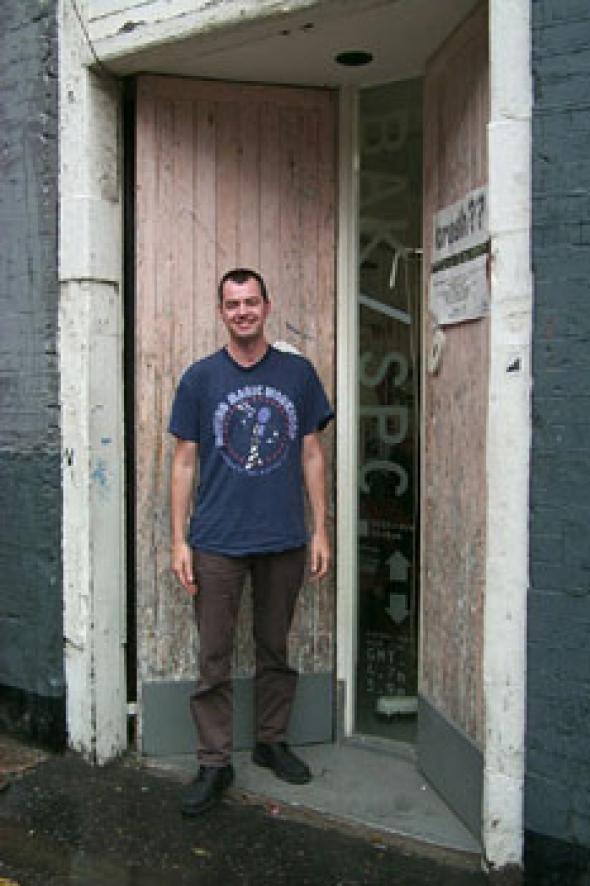Those Were Not The Backspace Days
Pauline van Mourik Broekman on the DiY theory of socio-economics.
New Year’s eve was a blow out in more ways than one: while UK plc’s grand projet the Dome was being roadtested in East London and fireworks decorated the Thames, Backspace — one of the city’s most successful petits projets — saw off its end in characteristic style on the South bank’s Clink Street. For one night Winchester Wharf, vacated prior to its inevitable sale, turned into a towering audio inferno courtesy of Ninja Tunes, AudioRom, Backspace and in collaboration with Aardvark free party crew.
But organisers of Backspace (a technical resource, provider and workspace you’ll find cropping up as facilitator of scores of independent Net projects in the ’90s) are loathe to describe their exit in terms of closure. Nostalgic laments for the good old days of ‘anti with e’ (an intimate international art and activism workshop organised by Heath Bunting in ’97) or indeed any romantic blast from the past are met with jocular pragmatism by co-founder James Stevens. Like others involved in running the space, he refuses to submit to the comforting narrative of poverty-stricken avant-garde ramraided into quietism by stolidly gentrifying corporates, and has quite happily let whatever Backspace was splinter and reform elsewhere. Together with ‘earbleeders’ datacide, Stevens now runs a shop selling zines, records and videos underneath DiY_plc in E1, while other arms of the project are sprouting up elsewhere in London.
The thread connecting the old and the new is the attempt to generate self-sustaining micro-economies that route around the parental dependence and singular economic vectors fostered by public funding or sponsorship; to get by on the cumulative cash resources of a small community. When Gomma/Decoder spoke at Stalk (recently reincarnated as DiY_plc) a while back, he described Northern Italy’s autonomous scene’s economic model — which utilises money collected from what you might call ‘entertainment and leisure’ (aka music and drinking) to finance radical publishing and other ‘collective goods’. Backspace and others continue to test and rewrite the UK’s recipes.
Pauline van Mourik Broekman <pauline AT metamute.com>
Backspace: http://bak.spc.org
Mute Books Orders
For Mute Books distribution contact Anagram Books
contact@anagrambooks.com
For online purchases visit anagrambooks.com








